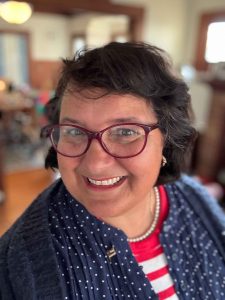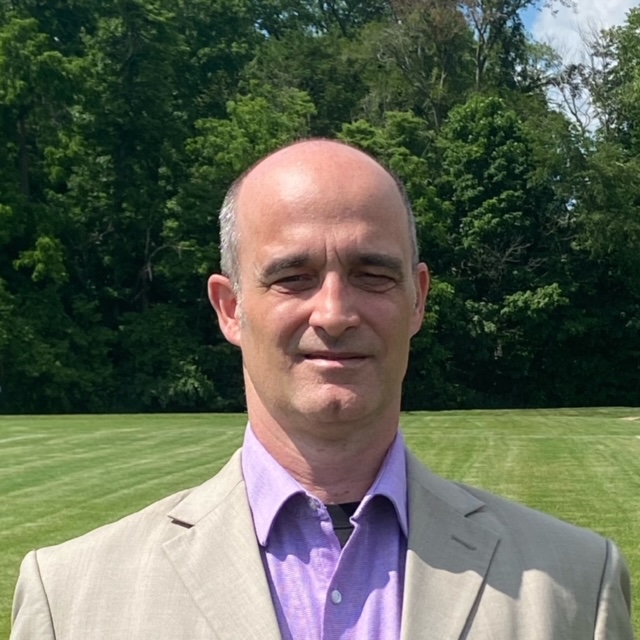Teacher Spotlights
Teacher Spotlight – Karina Chapman (Fortuna, CA)
Snapshot
Teacher Name: Karina Chapman
School Name: Fortuna Middle School
School Location: Fortuna, California
No. of Years Teaching: 25 (plus two substituting)
Subject Currently Teaching: American History (5 sections; 8th grade)
Education: M.A., American History
Memberships: National Council for the Social Studies (NCSS); Phi Alpha Theta National History Honor Society
Karina Chapman teaches five sections of American History to 8th graders at a middle school in Fortuna, California.
Fortuna is a remote town located nine miles inland from where the Eel River meets the Pacific Ocean and about 250 miles north of San Francisco.
Although Chapman—whose students affectionately call her Mrs. C,—is originally from California, years ago, she and her husband relocated to Maine where she taught at Noble Middle School in North Berwick, Maine.
However, California called her back to care for her 96-year-old father who lives in a neighboring town. “I wanted to be here to help my brother take care of meals and appointments and just visit Dad, so he can stay in his own home,” she says.
Reflections on How Teaching Has Changed
With 25 years’ experience teaching from coast to coast, Chapman says the vocation has changed quite a bit since she began her career in the 1990s.
“Being a teacher in 1996 was completely different without the technology we have today,” Chapman says. “Kids were more engaged, knew how to play, had much longer attention spans, and did stuff outside of school besides playing video games.”
Like it or not, the growth and development of technology—the internet, texting, social media, cellphones—has impacted the vocation of teaching dramatically.
Thanks to AI chatbots—ChatGPT, Grok, etc.—it’s much easier for kids to complete a homework assignment without much, if any, critical thinking on their part.
“Fifth graders wrote five-paragraph persuasive essays in the 1990s, whereas today it can be a struggle to get kids to write just a paragraph in history class,” Chapman says.
The sentiment probably rings a bell for many of today’s teachers, who are expected to do much more than before.
“One of the biggest changes is the sheer volume of responsibilities that teachers have now,” Chapman says. “There is so much data to collect and new programs to learn and implement. As expectations for teachers change, so do their jobs.”
The political atmosphere is vastly different, too, Chapman says.
How Polarization Has Affected Education
Much has been written about how polarization has deepened in the U.S., a result of the ever-deepening divide between the right and on the left.
“Teachers went from being just teachers to being heroes during Covid, and now to almost being the enemy in some instances,” Chapman observes. “When a state recommends reporting teachers who say anything about a specific topic, for example, there is something very wrong in society.”
Parental demands are becoming increasingly common, placing an additional burden on teachers who were already underpaid and underappreciated. Now, teachers are being asked to do more.
“Now we have to navigate what is currently happening with the country politically in terms of what can and cannot be taught to their children,” Chapman says. “When a small but vocal group of people try to change a curriculum for all students and ban books because of their own beliefs, it negates the rights of others.”
Despite the influence of polarization, Chapman has managed to maintain balance in her classroom management.
“I tell the kids my job is not to teach them what to think, but how to think for themselves,” she says. “This is why I love SGAP and the Student Forum newsletter.”
“The kids were very interested in discussing Charlie Kirk and the First Amendment right to freedom of speech, and we never once dipped into whether he was right or wrong,” Chapman says. “It was one of my best lessons yet.”
Teacher Spotlight – Jack Reavis (Muskogee, OK)
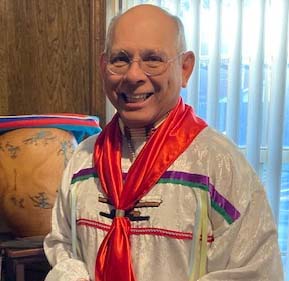
Jack A. Reavis teaches U.S. history and government to students in the Three Forks region of Oklahoma, which was a center of development in the state during the 19th century. Reavis practices Cherokee culture and beliefs.
Teacher Name: Jack A. Reavis
School Name: Muskogee High School
School Location: Muskogee, OK
No. of Years Teaching: 28 years
Subjects Taught: AP U.S. History, AP Government & Politics
Honors: Finalist for Oklahoma Teacher of the Year
As a descendant of Native American heritage, veteran social studies teacher Jack Reavis remembers how his great-grandmother and mother spoke the Cherokee language.
“My view of culture and respect for the Mother Earth and all humanity come from these two women,” says Reavis, who honors his past by practicing Cherokee culture and beliefs in the present. “The Cherokee have always stressed the importance of education.”
Practicing Native American spirituality has positively impacted his teaching philosophy and pedagogical approach. “Sometimes a hug is all a student needs, not what you are teaching,” Reavis says. “The most important thing I have learned over the years is that what I have freely given away has always come back to me seven-fold.”
Reavis teaches U.S. history and government in the Three Forks region of Oklahoma, once a thriving hub for the settlement and development the great American West. Today, the area is largely rural, which presents its own teaching challenges but also opportunities.
Rural vs. Urban Schools
Like many of the teachers who use the SGAP Student Forum newsletter and resources in their classrooms, Reavis teaches in a rural area of Oklahoma.
“In both rural and urban settings, the primary goal of the educational system is to contribute to the mental, spiritual, emotional, and physical development of youth,” Reavis says. “But a rural school that serves 250 students will not offer the same educational experience as an urban school that serves 4,500. The educational goals may be standardized but how they are realized is much different.”
Reavis believes these differences must be factored into the equation when evaluating the benefits of school choice programs, which have rapidly grown in popularity nationwide.
“School vouchers are here and they are not going away,” Reavis says. “The schools in rural Oklahoma must play the long game. If the state mandates equity, the smaller rural school districts will struggle to stay open. If these rural schools close, we will lose a vital part of our Oklahoma identity and who we are as a people.”
School Choice
School choice programs may be more functional in the urban system than rural, Reavis believes. “The busing of rural students to an urban school an hour away is not in the best interest of our students,” he adds.
How might states and communities mitigate these potential negative impacts on rural schools? Reavis suggests turning to the students themselves for their ideas and solutions.
“If we really want to resolve some of the problems that currently exist in public education, ask our young people,” Reavis says. “Turn fresh and innovative minds loose on the issues facing us. It is obvious the Boomers can’t solve or fix it. Let the young minds of today create their own future. A child shall lead the way.”
Teacher Spotlight on Will Linser (Bellevue, WA)
Name: Will Linser
School Name: Bellevue High School
School Location: Bellevue, WA (Seattle metro area)
No. of Years Teaching: 27
Subject(s) Taught: AP U.S. Government & Politics, and U.S. History
Grade(s)Taught: 11th and 12th grades
Located just east of Seattle in the verdant Pacific Northwest, Bellevue, Washington, is home to some of the world’s largest technology companies. Amazon was founded in Bellevue by Jeff Bezos in 1994, and today the city hosts satellite offices for eBay, Meta, ByteDance, Oracle, Salesforce, Google, and Microsoft, to name a few.
Teaching and Technology
Perhaps it’s no surprise, then, that Will Linser—who teaches AP U.S. Government and U.S. History at Bellevue High School—says that technology has changed how we teach significantly.
“When I first began teaching, the biggest tech headache was students using pagers,” Linser says, reflecting on his 27 years of experience as an educator. “My, how times have changed, and technology has improved. Now every student has a laptop.”
But for every strength, there is a weakness; they are two sides of the same coin. Technology brings many benefits but also challenges. As tech journalist Nick Carr first purported back in 2008, the internet (and all its distractions) affects our ability to focus. And that consequence has been absorbed by the younger generation, who grew up on technology.
“The biggest challenge is keeping students engaged,” Linser says. “Another change has been being trying to both teach and entertain my students, so that they remain on task and learn.”
Fostering Focus
Most teachers know how frustrating it can be to try to get the attention of a young person watching a TikTok video on their phone in class. This has put additional pressure on teachers. They must not only teach; they must also win their students’ attention.
Linser says his high school recently implemented a ban on student cell phones in the classroom. No doubt other schools around the country have already gone (or will soon go) that route.
“I hope that we can make what we teach more relevant to our students so that they remain engaged,” Linser says. “If our students don’t see what we’re teaching as relevant to their lives, then they just tune us out.”
One way Linser encourages student engagement is by using the SGAP Student Forum newsletter and resources in his classroom.
“I have my students answer the discussion questions for the two issues,” he says. “They are always current and relevant. Answering the questions makes my students think about the important issues facing our country.”
Looking Forward
Linser believes that artificial intelligence will influence the future of teaching. He serves on a professional learning committee that has begun to look at the impact of AI on education.
“It is my hope that we can begin to move to a more collaborative educational experience for our students,” Linser says. “They’ll need that skill in their future careers.”
As a veteran teacher with nearly 30 years of experience, Linser encourages fellow teachers to not be afraid to take risks, even if the effort falls flat. “We’ve all taught lessons that we thought would be a smashing success,” he says. “Well, sometimes things don’t work out as planned. That’s both the fun bit and frustrating part of teaching.”
In fact, Linser says, it’s good to shake things up and not get in a rut. “Try to do at least a few things differently every school year,” he adds. “It’ll be a positive experience both for you and your students.”
Teacher Spotlight on Chris Elliott (New Haven, IN)
Snapshot
Name: Chris Elliott
School Name: New Haven High School
School Location: New Haven, IN
Subject(s) Teaching: U.S. History, Government
Grade(s)Teaching: 11, 12
No. of Years Teaching: 12
In an Education Week article on how polarization is affecting the classroom, Rick Hess discusses how the deep political divides in our nation are having a “chilling effect” on classroom dialogue. Social studies teachers in particular may feel more challenged than teachers of other subjects since many government and history teachers use current events to spark classroom discussion and debate.
As the article notes, because of the heightened polarization, some teachers are avoiding discussion of current events. But learning how to navigate differing opinions is a skill we will need more, not less, in the youth who will be “generation next” for our country.
Teaching Current Events in the Classroom
As a veteran teacher and published author, Chris Elliott—who teaches U.S. history and government at a public high school in New Haven, Indiana—says he’s seen a number of changes as a result of the tense political climate.
“Public education is being scrutinized again,” Elliott says. “Much of that scrutiny—CRT, mask mandates during Covid, banned books, etc.—is based on misinformation. Recognizing this climate, I don’t shy away from assignments and discussions covering potential powder keg topics, but I ensure that I remain politically neutral in the classroom.”
Elliott believes that teaching youth how to engage in constructive dialogue with people who hold opposing views will be even more important in the future. “We should continue to encourage rich dialogues about sensitive subjects,” Elliott says. “In my government classes, we recently held discussions on Supreme Court cases about gay marriage, abortion, search and seizure laws, religious rights in public school, and gun control. The kids love it!”
One resource Elliott uses in his classroom is the SGAP Student Forum newsletter. “We read ‘the controversy’ sections of the newsletter after I summarize the two bills up for vote,” he says. “Next, I ask students to complete the assignment provided in the newsletter. We discuss their responses the following day.”
Distracting Devices
Another trend that has affected education today is technology, Elliott says. “We cannot ignore how information on the internet—some credible, some not—shapes our modern society, which includes the classroom,” he adds. “Increased internet access will continue to affect our curriculum.”
One of Elliott’s concerns is the over-reliance many students have developed on technology, and the distraction it causes. “Cell phones are the number one challenge facing educators today,” Elliott says. “Student engagement and achievement decline primarily due to distractions that electronic technology brings to the table.”
Elliott believes schools should implement a policy banning student cell phones and other devices. In this way, teachers themselves aren’t forced to act as “cell phone cops” with their students.
Indeed, Elliott’s teaching philosophy and approach to classroom management emphasizes respecting his students rather than micromanaging them. “Most of my students already tackle adult responsibilities—jobs, driving, caring for younger siblings,” he says. “I establish trust by recognizing their adult responsibilities and working to guide them toward graduation and full immersion into the adult world.”
Teacher Spotlight on Lisa Hintz (Fayette, Ohio)
Snapshot
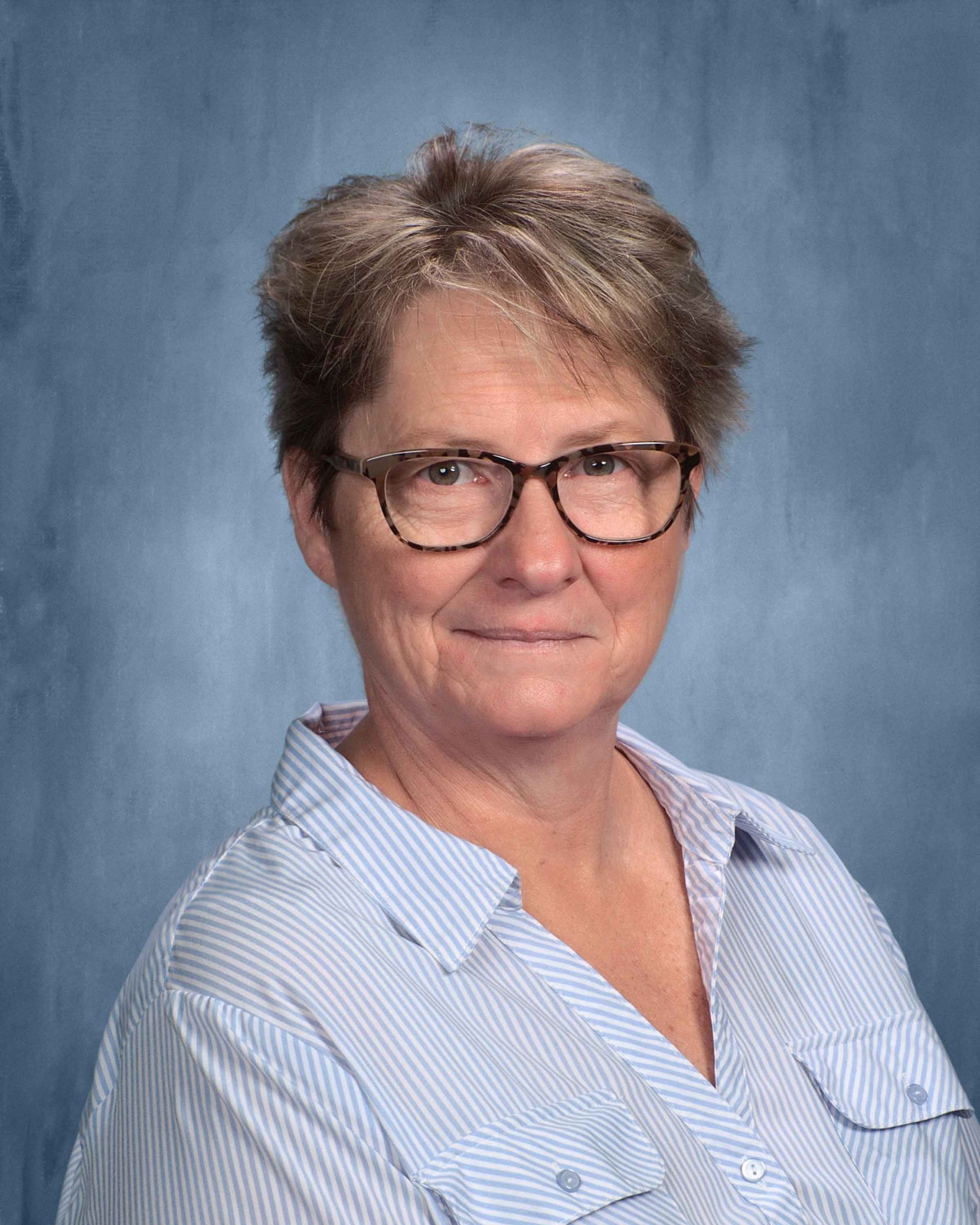
Lisa Hintz is an English and Government Teacher at Fayette Local School in Fayette, Ohio.
Name: Lisa Hintz
School Name: Fayette Local School District
Location: Fayette, Ohio
Grades/Subjects Taught: Middle School English; High School Government
No. of Years Teaching: 16 years
For more than 80 years, residents of Fulton County, Ohio, have consistently voted for Republican candidates for U.S. president, with few exceptions. But Lisa Hintz, English and Government Teacher at Fayette Local School District in Fayette, Ohio—a village in Fulton County—is ensuring political discourse and debate take place on both sides of the aisle.
Round Table Debates
Hintz purposefully pushes her students to see the other side’s perspective by having them argue the opposite of how they feel in her “round table debates.” She organizes the students’ chairs and desks in a circle, so the students have to face each other. And she polls the students before assigning their role in debates, so she can give them the opposite side.
“I believe it is important to teach common discourse,” Hintz says. “I started the round tables with students facing each other because people can be so opinionated on certain topics. Honestly, the way the world is and how everyone is so busy yelling over and at each other, I wanted to add depth to our discussions and debates.”
Hintz says she received pushback from the students initially, but then they started to see the other side. “It may not have swayed their opinions, but they had to research the topic, look for opposing views, and gather them from multiple sites. Students are graded on their participation and knowledge of the subject. To this day, my former students comment on some of our debates and how much fun they had.”
Government Groove
Hintz is just now getting back into teaching Government classes, after taking a hiatus and focusing more on English. Now she is back to teaching Government and finds herself drawn to incorporating a current events-based approach to her teaching.
“Going from Government to high school English to middle school English, the dynamics have changed, and I had a flow from History to Government,” Hintz explains. “Now I am working to bring that flow back by encouraging reading comprehension and being actively involved with what is happening in the world.”
Each class period, Hintz devotes five to ten minutes to discussing current events in local, national and/or international news. “I believe it has to be more than the textbook and feeding answers,” she says. “Creating curiosity in my students about our government and the world is important to me. I try to help my students see more than what is popular in the news and learn to research before they speak.”
But Hintz is certainly aware of media bias and she says she challenges her students to watch and compare the news outlets for what they do and don’t cover. “The day Queen Elizabeth died, I had students running down the hall to give me the news. I became a little choked up, because these were students who normally would not pay attention, but now are constantly asking questions and digging deeper. I love what I do, and, man, that day, I felt like, hey, I can make a difference.”
Hintz is indeed making a difference in her corner of the world, and her students will no doubt remember her influence in their lives for years to come.
SGAP Teacher Spotlight for April 2020 (Stephen Kimbrough, Addison, Texas)
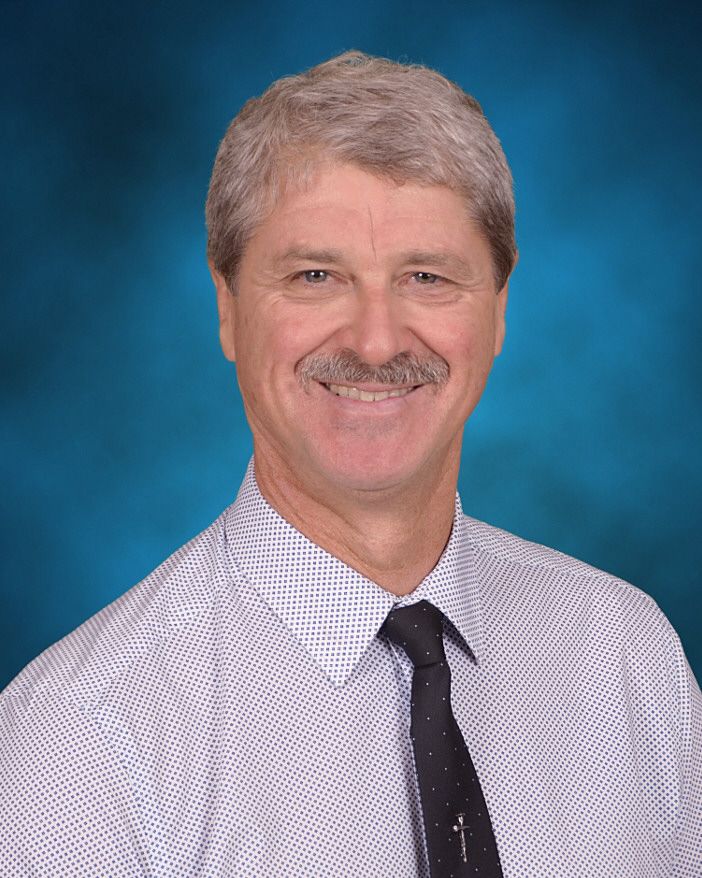
Vital Stats
Name: Stephen Kimbrough
School Name: Trinity Christian Academy
City, State: Addison, Texas
Subjects Taught: AP U.S. Government and Economics
Grade Taught: 12
No. of Years Teaching: 34
With 34 years of experience as an educator, Stephen Kimbrough teaches Advanced Placement U.S. Government and Economics to seniors at Trinity Christian Academy in the North Dallas suburb of Addison, Texas. Pedagogically, he uses the Socratic method as well as models, flow diagrams and other graphic organizers to demonstrate how various processes develop, rather than just having students memorize facts.
Kimbrough has been using the Student Governmental Affairs Program (SGAP) for about 10 years in his AP Government classroom. “I have students research the issues and write a short argumentative essay on each issue,” he says. “This is good practice for the AP Government exam, which now includes an argumentative essay.”
In his AP Government classes, Kimbrough emphasizes the importance of students becoming informed citizens as they prepare to graduate from high school and go out into the world. “I want students to have a deeper understanding of political concepts,” Kimbrough says. “When we study a specific political concept, I always challenge my students to ask the ‘why’ question.”
For instance, why did the United States Founders establish the country as a republic instead of a direct democracy? “Our Founders understood the problem of an ignorant populace, which is precisely why they created a republic,” Kimbrough says. “As our nation has become more democratic, it has become more important that we advance a more informed citizenry.”
Over time, Kimbrough says, the U.S. government has slowly changed to become more of a democracy. As a result of the Seventeenth Amendment, he points out, people now choose their senators, something the founders did not intend. Also, some people call for the removal of the Electoral College, so the people can choose the president.
But the Founders did not trust the people to make these decisions, Kimbrough says. “They knew that many of the people would not research policy questions and candidate choices, which means they could be manipulated to make decisions for selfish motives,” he adds. “My goal for my students is that they understand this and make good decisions in light of how it is supposed to work and how it works today.”
Pushing Past Partisanship
As an educator who uses SGAP in his AP Government classroom, Kimbrough believes social studies teachers must be careful not to put partisanship before teaching students to understand both sides of the issues. “I believe that if teachers can truly reveal the truth behind an issue, and not just their own ideology, that a well-informed citizenry can, and will, make the right decisions,” he adds.
The fact that today’s generation is part of one of the most informed societies in history is both a challenge and an opportunity, Kimbrough says. “Students are inundated with political information from a myriad of social media sources,” he adds. “It’s vastly important for them to be able to separate fact from fiction in order to promote a free society for generations to come.”
Kimbrough hopes that when students leave his class, they will be able to identify what the U.S. Founders intended for the American government and how that vision compares the system we have today. “Also, I desire that students remember their political participation that they completed during the course and realize that politics is not daunting, or only for people who have some type of special expertise or knowledge,” Kimbrough adds. “Everyone can get involved!”
Teacher Spotlight on Amber Konzem (Richardson, TX)
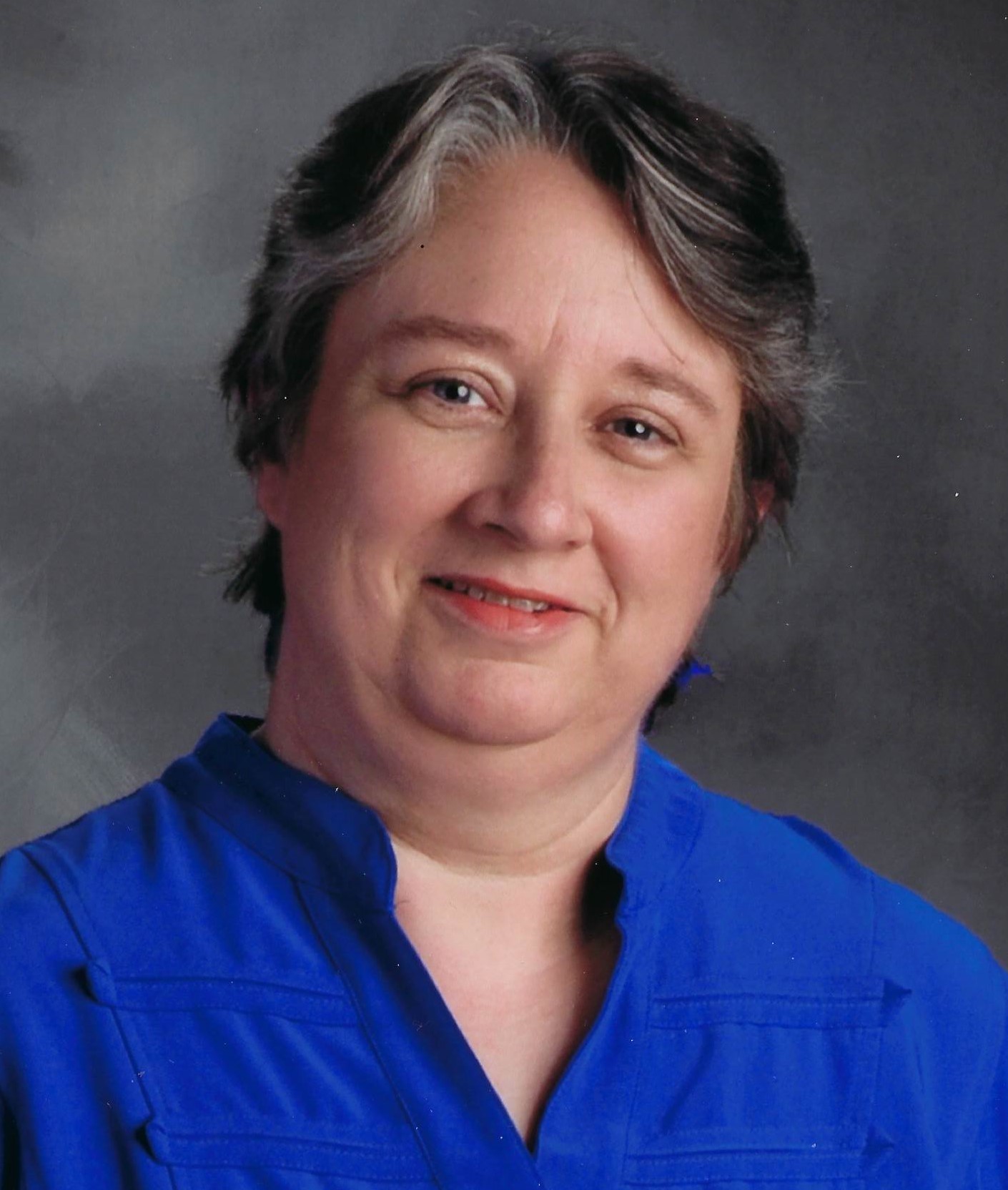
Name: Amber Konzem
School Name: Lloyd V. Berkner High School STEM Academy
City, State: Richardson, TX
Subject(s) Taught: U.S. Government, Economics, Personal Finance
Grade(s )Taught: Mostly 11th and 12th grades with some 10th grade
No. of Years Teaching: 7th year: all of it at L.V. Berkner and none of it could have happened without our outstanding faculty and staff supporting each other.
Honors: Published in TSHA Online Handbook of Texas and included in the TSHA ebook, Women Across Texas History, Vol 1.
Although she has spent 24 years of her life working with school-age students in various capacities—from subbing to working with at-risk students and scouting—Amber Konzem has spent all seven years of her official teaching career at Lloyd V. Berkner High School in Richardson, Texas.
An affluent inner suburb of Dallas, Richardson is home to the University of Texas at Dallas and the Telecom Corridor; more than 5,000 businesses have operations within Richardson’s 28 square miles. Berkner High School is one of four public high schools in the Richardson Independent School District, and it is where Konzem teaches U.S. Government, Economics and Personal Finance to 11th and 12th graders.
Teachable Moments
Konzem says she has recently engaged her students in classroom discussions on subjects such as the 2020 Presidential Election, branches of the U.S. government, and the economic market and trade. “I assisted eligible students to register to vote and several were in time for the upcoming presidential election,” she says. “They were very excited to be able to participate and vote.”
In today’s socio-political environment, now is the perfect time to teach students about civics, Konzem believes. “As students transition into adulthood, they need to have a strong knowledge of the Constitution, how the government functions, and how to initiate change when society deems it necessary as well as how our freedoms have been protected by the Amendments and how these freedoms can be lost,” Konzem says.
Responding to the Pandemic
Speaking of lost freedoms, the COVID-19 pandemic has forced the Richardson Independent School District to make numerous changes for the best interests of the students and its faculty and staff members. Communication from the district and individual campuses to the student body, parents, staff, and community has been a vital component of the plan, Konzem says.
“Virtual learning has been a challenge for everyone,” Konzem says. “However, with the added technology the district has provided, a little creativity from both students and teachers, and a lot of patience from everyone, the beginnings of a routine is taking shape. In early October, f2f students were excited to return to the classroom.”
The school district has taken aggressive action to adjust to the current COVID environment, including requiring wearing of masks while on campus and social distancing, Konzem explains. “We have also provided face shields to all students and faculty and staff; expanded the number of lunches to create smaller groups of students in the cafeteria; and initiated a seating system in the entire building, which allows for distancing and contact tracing,” she adds.
With all the changes that have gone on in her school, Konzem says her approach to classroom management remains essentially unchanged except for having a greater sensitivity to possible social-emotional learning (SEL) issues.
“I try very hard to ensure that my classroom is a safe place for students where they have the opportunity to learn and grow as individuals—not just gaining knowledge in Social Studies but skills that can be used throughout their lives,” Konzem says. “I have an unwavering belief in my students and their high potential for success in their futures.”
Teacher Spotlight on Jill Villasana from Columbia, Missouri

Name: Jill Villasana
School Name: Muriel Williams Battle High School (“Battle”)
City, State: Columbia, Missouri
Subject(s) Taught: Government, AP U.S. Government and Politics, ACT Prep
Grade(s )Taught: Mostly 9th grade, ACT Prep is 9-12 elective
No. of Years Teaching: This is year 20!
Honors: James Madison Fellow 2004
With 20 years of teaching experience, Jill Villasana has always been a high-energy kind of teacher, which makes teaching students virtually during the COVID-19 pandemic feel “different.” Nonetheless, she can see the positive in a challenging situation.
“If a student wants to work on their assignments virtually at 11 p.m. or 6 in the morning, they have the option to do that and can get extra hours at work or care for their family members,” Villasana says. “Allowing students flexibility to work on school when they want to is an obvious benefit. For our students that plan to go to college, they are certainly being expected to manage a more collegiate schedule and work ethic.”
Battling the Pandemic
Villasana teaches at Muriel Williams Battle High School in Columbia, Missouri, a public high school built in 2013. Columbia is Missouri’s fourth most-populous and fastest growing city—its population growth was well over 20 percent between the 2000 and 2010 censuses. Because of this rapid growth, the city passed a $120 million bond issue in April 2010, partially to fund the new high school, Battle. The school is situated in a 300,000-square-foot facility and serves students in grades 9–12.
To cope with the coronavirus pandemic, Villasana says her school district just announced a three-tier plan for students this fall, including 1) all-virtual 2) hybrid two days in-class, three days virtual and 3) 100-percent in-seat.
“For secondary students, we’ve typically used an 8-period A/B block structure,” Villasana says. “This year we’re utilizing a 4×4 block based on semester, so students—and teachers—will only be managing four courses each semester. We’ll be using masks in addition to cleaning and social distancing. Our district has done a good job of prioritizing student mental health and family safety nets.”
Civility and Inclusivity
Diversity and inclusion are trends that Villasana hopes will influence social studies teachers of today and tomorrow. “I love that we are really focusing right now on an inclusive approach to social studies, trying to help all students see themselves and diverse perspectives in history and contemporary social studies,” Villasana says. “I think teachers are working hard to consider the viewpoints they are sharing with their students and working hard to facilitate development of civil discourse in their classroom communities.”
Villasana says she wants students to remember her class because it helped them understand the importance of taking civic action in their communities. “I hope something about their experience will remind them to register to vote when they are 18,” she says, “to educate themselves using reliable information, and to cast ballots in all elections.”
Teacher Spotlight for May 2020 #2 (Kim Ball from Bountiful, Utah)
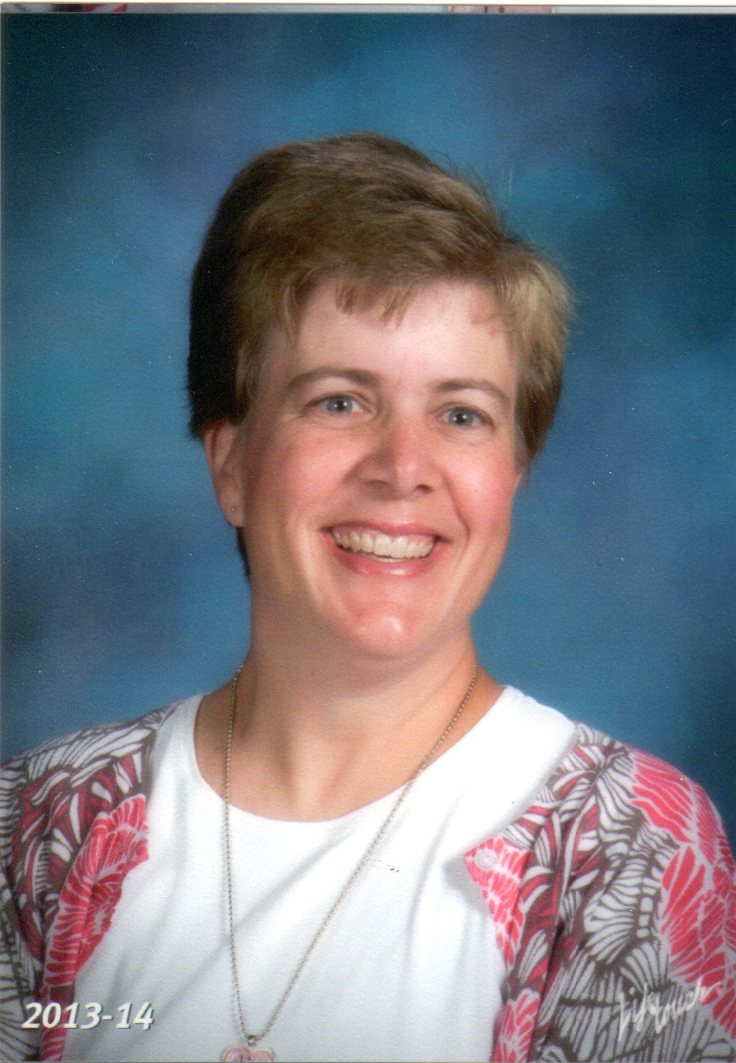
Name: Kim Ball
Title: Teacher
School Name: Bountiful High School
City, State: Bountiful, Utah
Subjects Taught: AP Comparative Government, AP U.S. Government, U.S. Government, Film History and Study Skills (which is a credit recovery class)
Grades Taught: 10-12, but mostly 12
No. of Years Teaching: 17 years
Nestled at the base of the majestic, snow-capped mountains of the Wasatch Range, the city of Bountiful, Utah, serves as a suburb of Salt Lake City and is home to Bountiful High School, where Kim Ball teaches AP U.S. Government and other subjects to 10th, 11th and 12th graders. Ball, who has 17 years of teaching experience, says teaching with a distance-learning format during the COVID-19 pandemic has required her to quickly adapt.
“The reason that I love teaching is I love the interaction I have with students in the classroom,” Ball says. “I like the human connection. However, I have been impressed with the technology that gives us the ability to connect with students remotely.”
Long-Distance Relationship
For her classes, Ball relies on Instructure’s popular learning management system, Canvas, where she uploads videos, audio files and PowerPoint presentations, along with other content. “I try to employ a variety of teaching methods and activities to help all of the different learners in my class,” Ball says.
For weekly videoconferencing with her students, she uses Zoom. Although Bountiful High School does not have a 1:1 learning environment, most students bring their own devices, Ball says, and all students are given the opportunity to check out a Cloudbook from the school.
Paperless, Please
Ball has been using the SGAP Student Forum newsletter and other civics materials in her classroom since 2011. Although she used to receive the monthly paper mailings, in 2018, Ball voluntarily switched to paperless in order to save paper. Now she relies solely on the SGAP e-newsletter, which is emailed to enrolled teachers four times a semester, or eight times a year.
“I love the paperless version of the SGAP newsletter,” Ball says. “Each of the issues in the SGAP newsletter relates to policy that is looking to be made, has been made and needs changing, or in some way impacts policy. I select six to 10 of the issues and then divide my classes into groups of about four students and have them answer questions relating to their issue and policy.”
In the Legislative Loop
Ball says she likes the pro/con format of the Student Forum newsletter because it helps students make more educated assessments of current legislative issues. This is especially important, she believes, in today’s world of politics.
“The way my students get information is totally different than what I am used to and what their parents and grandparents have done,” Ball says. “Our sources have been TV, radio and newspaper. My students today get their news through social media. I think it is important to help them navigate through this and teach them how to evaluate different sources.
Ultimately, Ball wants her students to remember that they mattered in her class. “I also want them to remember they should educate themselves and vote,” Ball adds. “One person can and does make a difference.”
SGAP Teacher Spotlight May 2020 (Paul Martin, Friend, Nebraska)
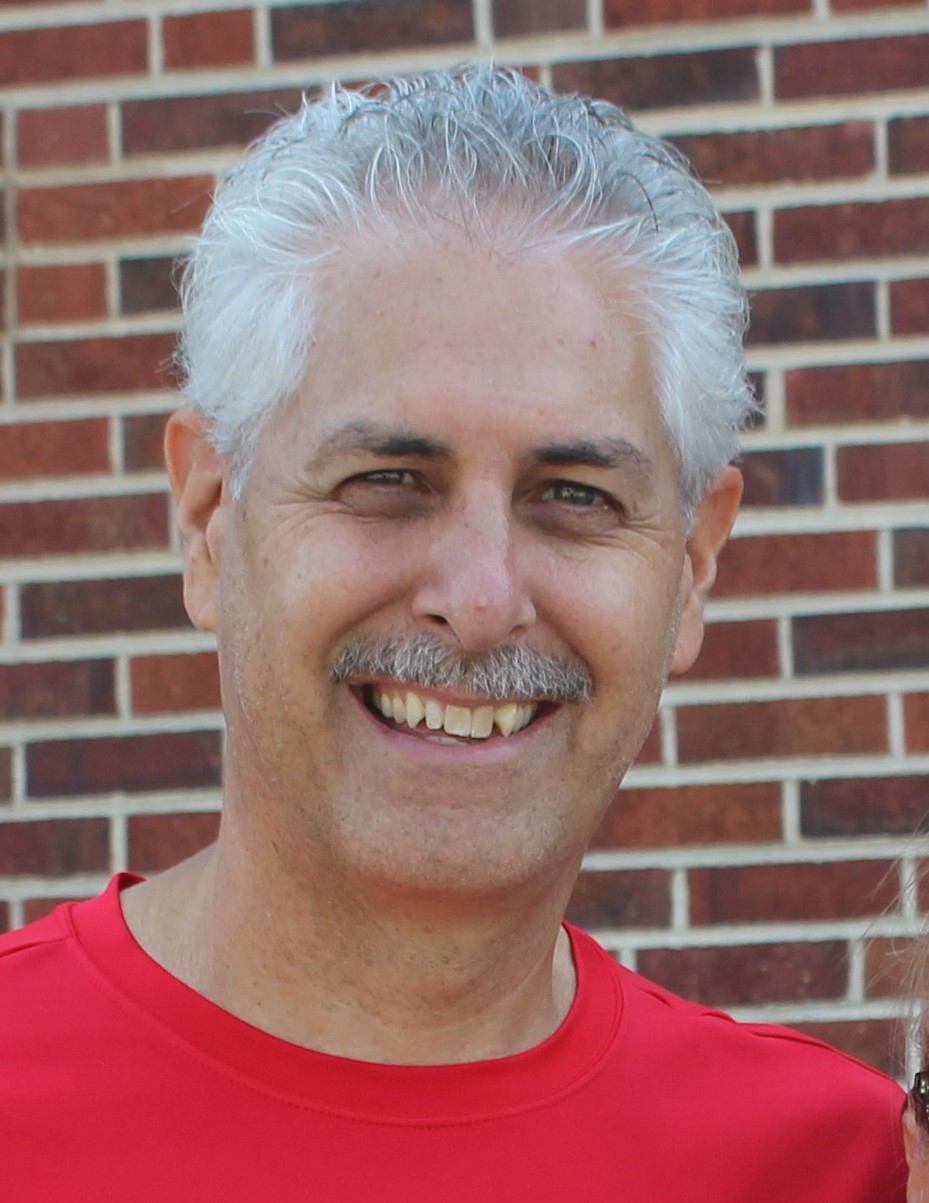
Vital Stats
Name: Paul Martin
Title: Social Studies Teacher
School Name: Friend Public School
City, State: Friend, Nebraska
Subject(s) Taught: Geography, American History, World History, American Government, Sociology
Grade(s)Taught: 7th – 12th grade
No. of Years Teaching: 32 years
The coronavirus pandemic has changed Americans’ lives dramatically, and one profession greatly affected by these changes is teaching. Like so many teachers today, Paul Martin has had to quickly shift from in-person teaching to a distance-learning format for his classes due to school closures where he teaches.
Going the Distance
Martin teaches American Government and other subjects to 7th through 12th graders at Friend Public School in Friend, Nebraska. Located thirty miles west of Lincoln, Nebraska, Friend is a small town with a population of around 1,000. Fortunately, the school has enough Chromebooks and tablets to cover most of the students and nearly all students have internet connections at home, save for one or two.
“This was my first day to use distance learning to connect with my students during this time of school closures,” Martin says. “The challenge will be getting comfortable delivering good, meaningful lessons to the students online. I am glad to at least be meeting with my students and I sense they are happy to have that connection as well.”
Like many teachers across the nation, Martin has not had much experience teaching online and the sudden switch in format has required him to be nimble. “I do feel that I am learning some good ideas and I’m having to adapt and be stretched each day that I am not able to meet face-to-face with the students,” he says. “It can be challenging to keep up with the new and quickly changing technologies.”
Technology also offers good learning opportunities as well, he says. “Using new technologies will provide social studies teachers with new avenues for instruction,” Martin says. “It is important to provide our students with opportunities that will prepare them for our ever-changing world.”
Thank You for Being in Friend
Teaching in a small community such as the city of Friend, Nebraska, was not what Martin pictured for his life. After all, he grew up attending one of the largest high schools in Nebraska. “Now I find myself teaching in one of the smaller schools in our state,” Martin says. “While course offerings may be limited, the opportunities for students to be involved in extra-curricular and other school groups are great. I have really come to enjoy living in this community and teaching at the Friend Public School.”
Martin’s philosophy of teaching is that learning is a lifelong process. “It is also important that students develop the skills and understanding that will help prepare them to be good citizens who are able to make positive contributions to the community,” he adds.
For the last eight years, Martin has used the SGAP program in his American Government classes. “I appreciate the timely topics and discussions SGAP generates,” he says. “Using SGAP in my classroom can really bring to life the concepts I am teaching and helps the students make important learning connections.”
What Martin hopes his students remember about his class is that he cares for them first and foremost. “I also want each one of my students to know they have the potential to make a positive difference in society and the lives of others,” Martin says. “I want them to have an appreciation for our great nation and know that they can have a voice in our government.”
SGAP Teacher Spotlight for October 2019 (Amber Hale, Evansville, IN)
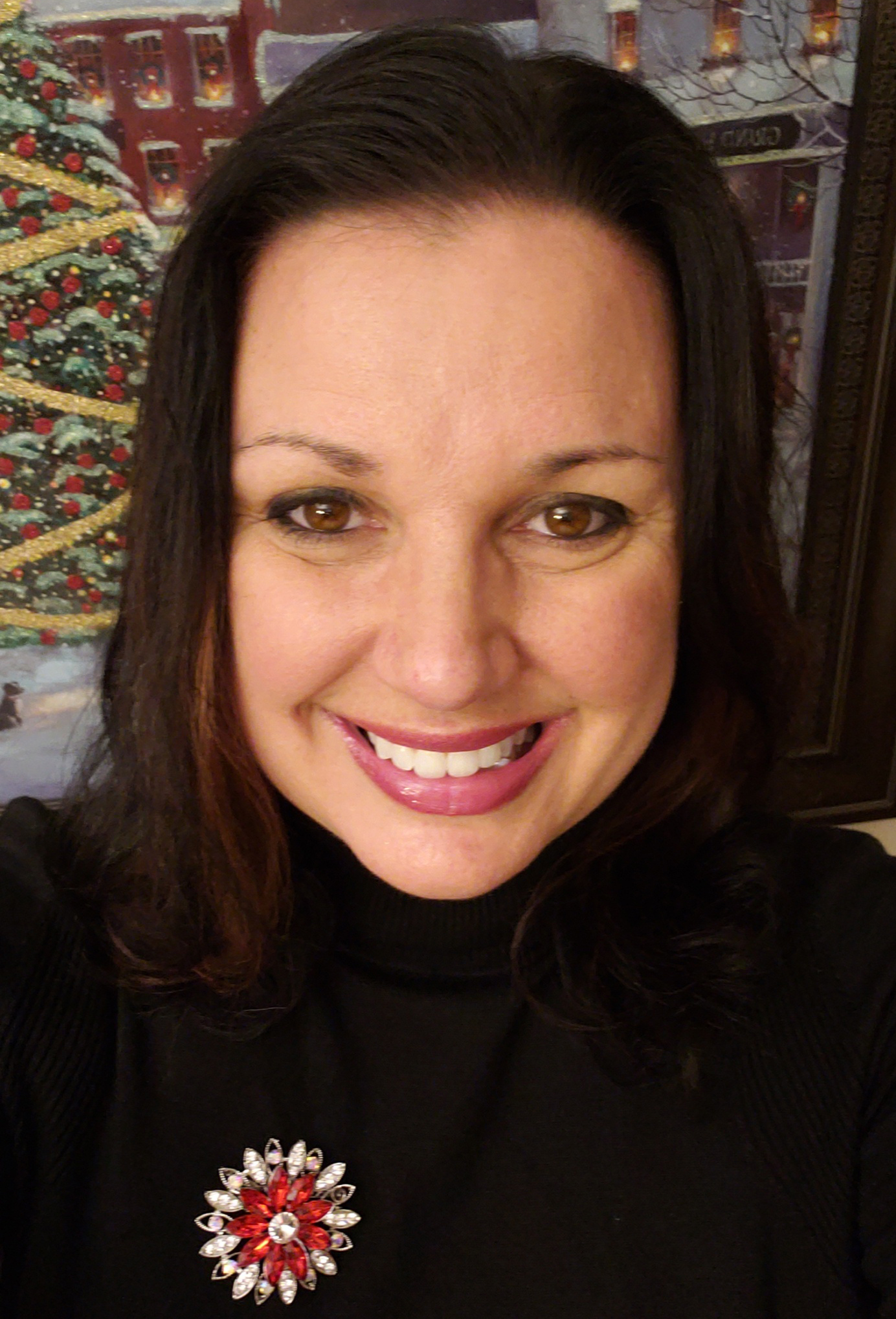
Vital Stats
Name: Amber Hale
Title: Social Studies Teacher
School Name: F.J. Reitz High School
City, State: Evansville, IN
Subject(s) Taught: Government and Economics
Grade(s)Taught: 12
No. of Years Teaching: 20
Although Amber Hale’s teaching career spans 20 years, this social studies teacher is in tune with today’s trends. She understands that technology is changing the way the education system works and embraces these changes. “Technology has greatly changed teaching for the better, and I believe it will continue to do so,” Hale says.
Hale uses the SGAP program to teach Government and Economics to her 12th grade students at F.J. Reitz High School, a public school in Evansville, Indiana. The school is a member of the third largest school district in the state—a district that places special emphasis on technology.
1:1 Technology Initiative
To ensure all students have the same access to technology and the tools they will in the 21st century, the district implemented a one-to-one initiative, providing all high school students their own take-home computer.
“Due to the one-to-one initiative, students can now research and find information that is current and relevant on a daily basis,” Hale says. “We can explore so much more material because it is at our fingertips. We use our Chromebooks every day.”
In addition to student devices, all classrooms are equipped with Activeboard and Activesound technology to support teaching and learning.
“Because our classroom is online, students have access to materials, video and links that I post, and they submit online as well,” Hale says. “This allows for more in-depth learning and instruction. This is also nice for when they have to miss class due to a field trip, etc.”
Timely and Timeless
Despite teaching in an environment supported by today’s technology, Hale’s approach to classroom management remains timeless. “As for classroom management, I try to use the Golden Rule,” she says. “I treat them with kindness and respect, and I expect it in return.”
She says her teaching philosophy centers on the principles of student empowerment. “Every child has different strengths and should be encouraged to explore them,” Hale says. “One day, they will be the ones handed the reigns to our great country. We need to prepare them to be educated decision makers and active citizens.”
Current and Future
As an educator who has used the SGAP program in her classes for several years, Hale believes in the power of engaging students in classroom discussions using current events. She says staying current on the news and current events is a tough but rewarding part of her job.
“It is imperative to always present multiple perspectives and let the kids discuss their ideas and opinions in an educated, controlled environment,” Hale says. “Trying to tie real life into my classroom is very important to me so that the students ‘buy in.’”
In the future, Hale hopes her students leave her classroom knowing that she genuinely cares about them and about the subjects she teaches.
“I had a veteran teacher tell me once, ‘The most important thing a child leaves your classroom with is their ego,’ and it has always stuck in my mind,” she says. “It does not do anyone any good to embarrass students or tear them down.”
SGAP Teacher Spotlight for September 2019 (Erin Le Francois, Mammoth Lakes, CA)
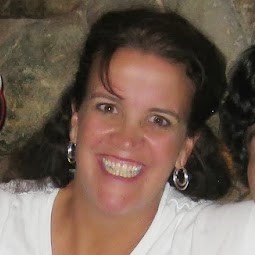
Vital Stats
Name: Erin Le Francois
Title: Department Head, Teacher
School Name: Mammoth High School
City, State: Mammoth Lakes, CA
Subject(s) Taught: American Gov’t, US History, AP US, AP Gov’t/Politics and AP Comparative Politics
Grade(s )Taught: 11/12
No. of Years Teaching: 26
Twenty-six years ago, Erin Le Francois began her career as an educator and—for the past 20 years—she’s used SGAP in her classroom. “A parent mentioned the SGAP program to me, and I signed up,” she says. “In my government classes, we discuss current events every Friday.”
Go Tell it on the Mountain
Today, Le Francois serves as a social studies teacher and department head at a four-year public high school in Mammoth Lakes, California. The mountain resort community is home to Mammoth Mountain, the West Coast’s largest ski area. Situated in the Eastern Sierra Nevada Mountains, Mammoth Lakes is about 164 miles south of Reno, Nevada, and 325 miles north of Los Angeles.
In her classes at Mammoth High School, Le Francois uses SGAP in a variety of ways. “Sometimes we just read the Student Forum newsletter topics and discuss,” she explains. “Sometimes we will use the discussion questions. Recently, we’ve been incorporating further in-depth study online with the resources provided.”
R-E-S-P-E-C-T
As an educator with more than two decades of teaching experience, Le Francois has learned to focus on the essentials in her approach to classroom management. “In my classes I have one rule: respect,” Le Francois says. “We build from there. As long as everyone is respectful, we can have open dialogue and trust.”
Respecting others is especially important in today’s polarized political climate. “Government has been interesting to teach these past few years,” Le Francois admits. “I always work to present an unbiased version of things, but for me this has gotten more challenging as I get older.”
The Way We Were
Technology has presented both challenges and opportunities to social studies teachers, Le Francois says. “Social media and media in general are changing so fast that I feel these will influence all teachers,” she adds. “Cell phones are another trend that has impacted teaching. Getting students to interact and discuss topical issues is always challenging.”
Le Francois says what she wants her students to remember most about her class is the importance of asking questions and thinking critically.
“I want students to remember to think before they make a snap judgement, that people are innocent until proven guilty,” she says. “I want them to remember to treat people equally and not rush to judge. Be kind, help others and give back to the community that raised you.”


